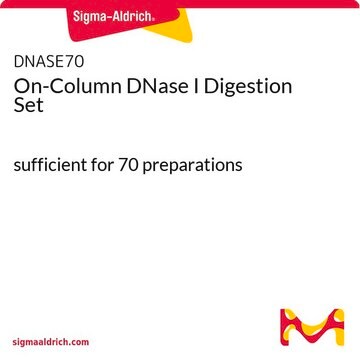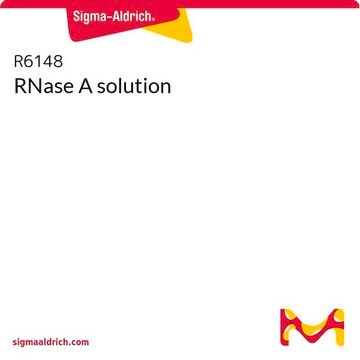D7291
Deoxyribonuclease I RNase-free solution from bovine pancreas
Synonym(s):
DNase I, Deoxyribonuclease I, pancreatic DNase I, pancreatic deoxyribonuclease I
About This Item
Recommended Products
General description
Application
Components
Unit Definition
Other Notes
inhibitor
signalword
Danger
hcodes
pcodes
Hazard Classifications
Resp. Sens. 1
Storage Class
11 - Combustible Solids
wgk_germany
WGK 3
flash_point_f
Not applicable
flash_point_c
Not applicable
ppe
Eyeshields, Gloves, type N95 (US)
Choose from one of the most recent versions:
Certificates of Analysis (COA)
Don't see the Right Version?
If you require a particular version, you can look up a specific certificate by the Lot or Batch number.
Already Own This Product?
Find documentation for the products that you have recently purchased in the Document Library.
Customers Also Viewed
Articles
Use of MULTI-seq lipid-modified oligos, protocol, and troubleshooting guide for PCR Assays and Sequencing applications.
Protocols
Deoxyribonuclease I is isolated from bovine pancreas and is processed to reduce RNase activity to below detectable levels.
Our team of scientists has experience in all areas of research including Life Science, Material Science, Chemical Synthesis, Chromatography, Analytical and many others.
Contact Technical Service









